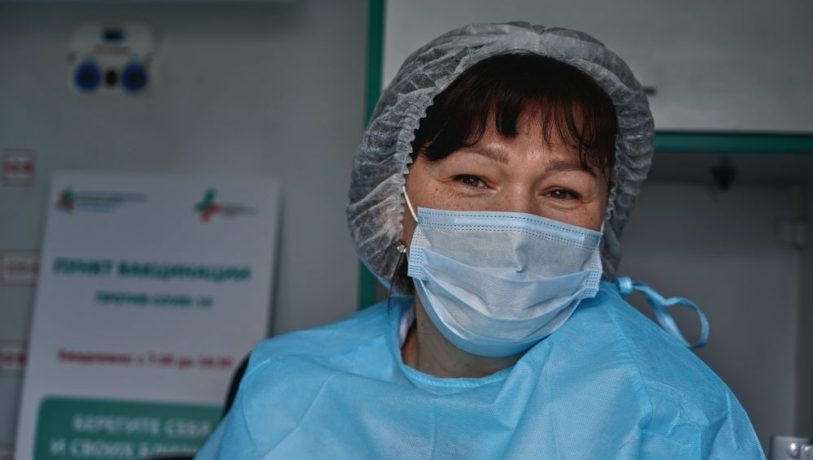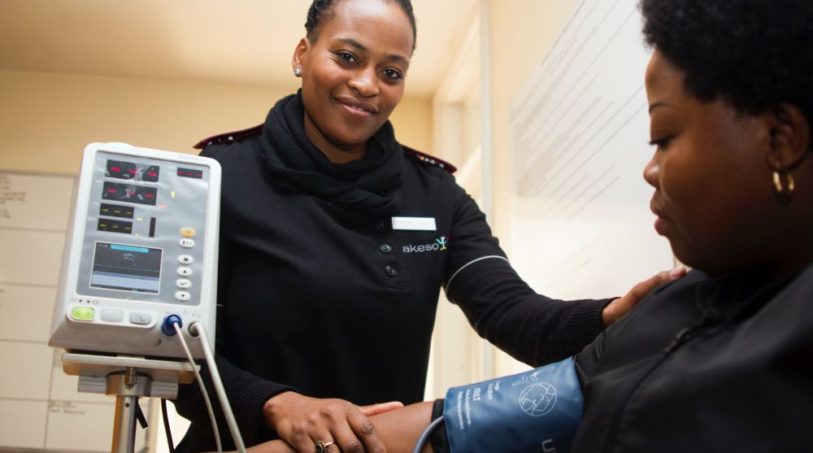24 Most Affordable Online Nurse Practitioner Programs (MSN) in 2025

CONTENTS
- 24 most affordable online Nurse Practitioner programs (MSN)
- Who becomes a Nurse Practitioner (NP)?
- What is a Nurse Practitioner (NP)?
- What do Nurse Practitioners do?
- What skills do you need to be a Nurse Practitioner (NP)?
- What are the benefits of advancing from an RN to an NP?
- What medical specialties can you practice as an NP?
- What is the salary for a Nurse Practitioner (NP)?
- Who is paid more RNs or NPs?
- What is the salary for a Registered Nurse (RN)?
- What are the steps to become a Nurse Practitioner (NP)?
- How to choose the right online Nurse Practitioner program (MSN)
- One-year online nurse practitioner programs (MSN)
- How long are online Nurse Practitioner programs (MSN)?
- How much do online Nurse Practitioner programs (MSN) cost?
- What is it like to get a Nursing degree online?
Nurses–they’re often the first health professionals we interact with when visiting a hospital. And the last ones we see when our appointment ends and we’re discharged. Anyone who has ever gone to the hospital when they were sick can attest to the vital role nurses play in our healthcare system.
The job of a nurse has evolved remarkably since the inception of the modern healthcare system in the early 20th century. And the scope of a nurse’s involvement in patient care continues to expand steadily year after year. Gone are the days when nurses operated simply as a “doctor’s aide” or waiting room attendants. Nowadays, it’s not uncommon for nurses to be involved in every part of a patient’s visit from start to finish – including patient intake, diagnosis, treatment plan development and even prescription writing.
As the prominence of nurses in our healthcare system continues to grow, the demand and interest in advanced nursing careers, particularly Nurse Practitioners (NP), has skyrocketed to an all-time high.
Who Becomes a Nurse Practitioner?
Licensure as an Advanced Practice Registered Nurse (APRN) or Nurse Practitioner (NP) is highly coveted by ambitious Registered Nurses (RNs) looking to advance their career and become more involved in caring for sick patients.
Earning a license to become a Nurse Practitioner can greatly expand the limited role RNs have in patient care as well as increase their salary benefits and administrative leadership opportunities.
What is a Nurse Practitioner?
A Nurse Practitioner is a skilled medical professional that has earned an advanced nursing degree – either a Master of Science in Nursing (MSN) or Doctor of Nursing Practice (DNP) – and has passed the requisite state licensing exams.
What Do Nurse Practitioners Do?
In recent years, the job of a Nurse Practitioner has become nearly indistinguishable from that of a physician. In fact, it is quite common for patients seeking care at a health clinic to have all of their healthcare needs met by a Nurse Practitioner without ever seeing a physician at all.
In addition to overseeing patient treatment plans and writing prescriptions, licensed Nurse Practitioners who earn specialty certifications perform a variety of medical procedures and even surgery.
Furthermore, Nurse Practitioners serve in leadership and teaching positions. They are responsible for hiring and supervising teams of nursing staff and training new nursing students

What Skills Do You Need to Be a Nurse Practitioner?
Nurse Practitioners are the highest trained medical staff among nursing professionals. They undergo years of advanced training to become licensed and work long grueling hours in a hospital delivering medical care to sick patients.
To succeed in this career, it is necessary to have a well-rounded set of skills to rely on. Here are a few of the most important:
- Self-Discipline – The extensive years of training and long work hours for Nurse Practitioners are not for the faint of heart. One must have solid self-discipline and mental stamina to endure the lengthy education process. As a skilled professional involved in making life and death decisions, you will be expected deliver 100% for your patients from the start of your shift to the very last minute of it.
- Leadership – Nurse Practitioners typically have the highest authority amongst a hospital’s nursing staff and often take on supervisory and teaching roles. Therefore, the ability to lead teams and inspire subordinate staff members is key to the success of a Nurse Practitioner. Nursing students in training will look to you for guidance and support. And you will liaise regularly with top Physician and Hospital Administrative figure heads to ensure that the hospital operates in a cohesive and smooth manner.
- Resilience Under Pressure – Hospitals can be fast-paced, stressful environments. Dealing with sick patients and their concerned family members requires the utmost care and attention and can be emotionally draining. Often, critical health decisions need to be made quickly and will fall on the shoulders of a Nurse Practitioner’s sole judgment. Resilience and an ability to keep calm and focused in stressful situations is an essential soft skill for anyone considering a career as a Nurse Practitioner.
What are the Benefits of Advancing From a Registered Nurse (RN) to a Nurse Practitioner (NP)?
Whereas Registered Nurses typically practice under the singular specialty of family medicine, licensing as a Nurse Practitioner opens the door to a variety of different medical specialties. After graduating from an accredited MSN or DNP program, Nurse Practitioners can go on to earn speciality and subspecialty certifications in any of the following fields:
- Neonatal
- Pediatrics
- Adult-Gerontology
- Psychiatric-Mental Health
- OB/GYN
- Orthopedics
- Emergency Medicine
- Neurology
- Oncology
- Critical Care
- Addictions
- Cardiology
- Cardiac Surgery
- Heart Failure
- Stroke
- Managed Care
- Gastroenterology
- Occupational Health
- Anesthesia
- Genetics
- Rheumatology
- Infectious Diseases
- Trauma
- Urology
- Dermatology
- HIV/AIDS
- Forensics/Sexual Assault Examiner
- Hospice & Palliative Care
- Ophthalmology
- Ear Nose & Throat
- Nephrology & Dialysis
- Plastic Surgery
- Radiology
- Wound Ostomy
- Family Medicine
Nurse Practitioners (NPs) earn a higher average salary than Registered Nurses (RNs). According to the Bureau of Labor Statistics (BLS), the average starting salary for a licensed Nurse Practitioner is $111,680. The average salary for Registered Nurses (RNs) is $75,330.
Additionally, Nurse Practitioners can reap the benefits of a better work-life balance. The responsibilities and authority of an NP are higher than that of an RN, and this is rewarded with greater flexibility in shift hours, more vacation days and better retirement packages.

What are the Steps to Become a Nurse Practitioner?
-
- Obtain a Bachelor of Science in Nursing (BSN) – The road to becoming a Nurse Practitioner begins with obtaining licensure as a Registered Nurse. This is achieved first by completing a Bachelors of Science in Nursing (BSN). And then by passing the NCLEX-RN Licensing Exam.
- Complete a Graduate Nursing Degree (MSN or DNP) – Next, you will need to enroll in a graduate nursing degree program. There are two options for completing this step. You can earn either a 2-year Master of Science in Nursing (MSN) or a 4-year Doctor of Nurse Practice (DNP). Nurse Practitioners who elect for the 4-year DNP typically conduct clinical research, serve in management positions, and will have high earning potential.
- Pass a State NP Licensure Exam – Licensing requirements for NPs are state-specific. After graduating from either a MSN or DNP program, you will need to pass the Nurse Practitioner Licensure Exam for whatever state you plan to practice in. Your preferred state may also have additional licensing requirements.
- Obtain a Specialty Certification – Some State Licensing Boards require Nurse Practitioner candidates to hold at least 1 certification in a specialty field. The American Academy of Nurse Practitioners Certification Board (AANPCB) is one of the most well known organizations that offer Nurse Practitioner (NP) certification programs. Several other national organizations offer Nurse Practitioner (NP) certifications as well:
How to Choose the Right Online Nurse Practitioner Program
The rise of online Nurse Practitioner programs has increased the accessibility of advanced degrees for working Registered Nurses. The flexibility of being able to learn from home means RNs can pursue advanced training without taking a hit to their income.
Finding the appropriate program depends largely on your current credentials and desired career goals.
Licensed Registered Nurses who hold an associate degree or nursing diploma should seek out bridge programs that will help them supplement their education to meet the nurse practitioner program requirements.
Registered Nurses who have a non-nursing bachelors degree will likely need to complete several nursing prerequisite courses before applying to a graduate nursing program. However, a select number of schools will accept RN applicants without a Bachelor of Science in Nursing if the rest of their application demonstrates preparedness for advanced nursing training.
Most MSN programs are 2-years. But registered nurses who currently hold a BSN and want to advance their career in the shortest time possible will want to apply to a 12 month online MSN program. The number of schools offering 1-year programs is limited. Here’s a list of schools with 1-year MSN programs:
- University of Nevada
- The University of Alabama at Huntsville
- University of Texas Rio Grande Valley
- Wilmington University
- Northern Kentucky University
- Capella University
- University of Arizona
- Kennesaw State University
- Southwestern Oklahoma State University
For registered nurses who hold a BSN and don’t mind the traditional program length, there are lots of online programs to choose from. In fact, there are so many online NP programs available that it can be difficult to narrow down your choices. Generally, there are 4 major program characteristics to consider when choosing a program that fits you: 1) length of the program; 2) cost of tuition; 3) number of on-campus visits required, if any; and 4) meeting licensure requirements for your state.
Registered Nurses who want to incorporate clinical research into their career should consider applying for Doctor of Nursing Practice programs. DNP programs are typically 4-years. Currently, the salary difference between MSN and DNP-credentialed nurses is small. However, there is a trend toward higher educational requirements for healthcare professionals. Therefore, it may benefit you in the long run to pursue a DNP. Holding the highest degree in the nursing profession will make it easier for you to satisfy any future changes to the educational requirements of the nursing industry.

How Long are Online Nurse Practitioner Programs (MSN)?
The average online Nurse Practitioner program length is 2 years. But many schools also offer 3-year programs for students who cannot devote significant time to classes and training sessions due to work and family commitments. Some programs even allow students to spread their coursework over a period of 6-years.
It’s important for online nurse practitioner program applicants to weigh their current commitments to find a program that will fit well into their schedule. This includes considering the best time of day for you to attend class sessions. Someone with a heavy day-time schedule will want to find programs that offer a sufficient number of classes at night, and vice versa.
How Much Do Online Nurse Practitioner Programs Cost?
The cost for online nurse practitioner programs can range anywhere from $300 per credit to upwards of $1400 per credit for the most expensive programs. With the average program running between 44-61 credits, the total cost of a nurse practitioner program can range from $14,000 to $90,000 when all other fees and expenses are factored in. Most schools allow enrollees to transfer some credits from other schools in order to lessen their financial burden. Programs with cost on the higher end of the spectrum typically make up for it by having state-of-art training facilities, top notch faculty members and very high pass rates for the national licensure exam. However, there are also many great bargain programs that offer low tuition cost while maintaining exceptional teaching staff and high pass rates for the national licensure exam.
Comparing costs between the cheapest online Nurse Practitioner programs is a great first step to reducing your financial burden. And there are many other ways you can reduce your costs as well. For example, many online nurse practitioner programs offer discounts to veterans and military personnel and the option to use benefits provided by your service branch.
Grants and Scholarships are another great option for lowering your cost of schooling. Organizations like the U.S Department of Health and Human Services’ Health Resources & Services Administration (HRSA) have a plethora of funding sources for nurses who want to advance their career. The Nurse Corps Scholarship Program pays nursing students a monthly stipend and covers tuition costs, eligible fees and miscellaneous costs like books, clinical supplies and uniforms. The HRSA also offers a Nurse Corps Loan Repayment Program that pays up to 85% of unpaid nursing education debt. Recipients of this award are required to work for 2 years in a critical shortage facility (CSF) or an eligible nursing school as Nursing Faculty (NF).
Nurses who want to lower their graduate education cost should also reach out to their employers. Many hospitals have a high demand for more nurses with advanced medical training and will pay all or part of your tuition costs to attend a graduate degree program.
What is it Like to Get an MSN Nursing Degree Online?
Most online nurse practitioner programs hold the majority of their classes online but also require students to attend a few brief on-campus learning experiences over the course of the program. However, some programs don’t require any on-campus visits at all. As you narrow down your program options, be sure to consider how a program’s on-campus learning requirements might affect your budget and scheduling. If traveling to campus one or two times for a few days of training is simply not an option for you, focus on finding programs that don’t require any on-campus visits.
You can expect every online nurse practitioner program to provide a challenging curriculum with rigorous coursework, required supervised practice hours and intense preparation for the national licensing exam. As a prospective online nursing program applicant, you should make sure that your desired program of choice will meet the requirements for the state you want to practice in as a nurse practitioner. You can find this information on the official website of your state board of nursing and sometimes from the online nurse practitioner program you are considering.
Organizations that offer National Exams in NP Specialty Fields
There are a few different organizations that offer national exams in different specialty areas for nurse practitioners which are recognized by state licensing boards. The American Academy of Nurse Practitioners Certification Board (AANPCB) offers three exams: Emergency Nurse Practitioner (ENP), Family Nurse Practitioner (FNP), and Adult-gerontology Primary Care Nurse Practitioner (AGPC-NP). The American Nurses Credentialing Center (ANCC) offers numerous tests for NP specialties: Family Nurse Practitioner (FNP-BC), Adult-Gerontology Acute Care (AGACNP-BC), Adult-Gerontology Primary Care (AGPCNP-BC), and Psychiatric-Mental Health (PMHNP-BC). The American Association of Critical Care Nurses offers four exams: Adult-Gerontology (ACCNS-AG), Pediatric (ACCNS-P), Neonatal (ACCNS-N), and Adult-Gerontology Acute Care (ACNP-AG). The Pediatric Nursing Certification Board offers two exams: Certified Pediatric Nurse Practitioner – Primary Care (CPNP-PC) and Certified Pediatric Nurse Practitioner – Acute Care (CPNP-AC). The National Certification Corporation offers two exams: Neonatal Nurse Practitioner (NNP-BC) and Women’s Health Care Nurse Practitioner (WHNP-BC).

24 Cheapest Online Nurse Practitioner Programs
Now that you know what to expect, let’s take a look at some of the cheapest online nurse practitioner programs for the 2022 school cycle. Our list includes the cheapest online FNP programs and other NP specialty fields. Each of these programs offers at least 80% of their coursework online (many 100% online!) at an affordable price while providing a rigorous and comprehensive training experience. Every program included in this list costs less than $68,000 and some as little as $16,000.
In-state cost: $15,673
Frostburg State University clinches the number spot on our list of the cheapest online nurse practitioner programs. Frostburg State offers two online MSN tracks for aspiring Nurse Practitioners: Family NP (FNP) and Psychiatric & Mental Health NP (PMHNP). Both tracks have an on-campus orientation required and then an average of two campus visits per semester with 90-95% of the coursework being online. Clinical hours can be completed in the students home area. Rural RNs who plan to continue working in their underserved communities after graduation are especially encouraged to apply. Students in the PMHNP track must complete one of the two program years in a mental health setting. For both the FNP and PMHNP tracks, entry is for fall only. Students can choose full time or part time enrollment, but will need to attend consecutive classes in the fall, spring, and summer terms. FNP students complete the program in 6 semesters as full time enrollees, or 10 semesters part time. PMHNP students can complete the program in 7 semesters full time or 13 part time.
In-state / out-of-state cost: $17,861
Columbus State University offers 100% of their coursework online in an asynchronous format. There are no on-campus visits required so earning your degree is completely flexible around your schedule. For aspiring Nurse Practitioners there is one track available in the Family Nurse Practitioner (FNP) field. Students from most, but not all states, can enroll in this bargain-priced accredited program. With 44 credits of work in addition to 765 practice hours, the program can be completed in as little as two years as a full time enrollee. Columbus State’s MSN program used to be offered as part of the Georgia Intercollegiate Consortium for Graduate Nursing Education, but will now be offered as a single entity rather than through the Consortium. Though the program remains the same, it is reapplying for accreditation by the Commission on Collegiate Nursing Education (CCNE) and prospective students can be assured that this is a reputable (and very affordable) online NP program.
In-state / out-of-state cost: $18,873
Midwestern State University offers two tracks for an online MSN in Nurse Practitioner: Family Nurse Practitioner (FNP) or Psychiatric Mental Health Nurse Practitioner (PMHNP). Both programs consist of 48 credit hours with coursework mostly in an online format. For the FNP track there are a total 7 required on-campus visits; and 3 on-campus visits for the PMHNP track. Admission requires an RN license in both the state the student will practice in and a Texas RN license. For students who already have an MSN, Midwestern State offers these programs as post-master’s certificate programs.
In-state / out-of-state cost: $19,431 ($385/credit hour + fees)
Clayton State University offers a 100% online MSN in the Family Nurse Practitioner (FNP) specialty. Admittance to the program requires GRE scores, at least a 3.0 undergraduate GPA, an undergraduate pharmacology course with a grade of “B” or higher. Admission requires a Georgia RN license. Admitted students matriculate for a fall term start date. Most classes have synchronous online portions to ensure that students get to know their peers and faculty in real time. The program consists of 47 credit hours and 585 hours of clinical practice. Full time enrollees complete the program in two years; part time enrollees can spread out their program coursework for up to six years if they choose. Applicants who already hold an MSN degree have the option to transfer up to 9 hours of credits to reduce their program costs.
In-state cost: $20,654 ($432/credit hour + fees)
Indiana State University offers a 100% online MSN in the Family Nurse Practitioner (FNP) specialty with no required campus visits. The program is available to residents of most US states as well as military students with APO/FPO addresses but closed to anyone residing in a country other than the United States. The program consists of 47-50 credit hours. Full time enrollees complete the program in 2.5 to 3 years while part time students can spread out their coursework for a maximum of five years.
In-state / out-of-state cost: $23,325 ($475/credit hour + fees)
Troy University offers a 100% online MSN in the Family Nurse Practitioner (FNP) specialty with no required on-campus components. Full time enrollees must matriculate in the fall semester, while part time students can start in the fall, spring or summer terms. The online program consists of 47 credit hours, 705 clinical practice hours and 16-week semesters. MSN-prepared applicants can apply to the program for a post-master’s online certificate. Applicants residing outside of Alabama should check with the program coordinator to make sure this program is available in their state, as every state has its own approval process.
In-state / out-of-state cost: $26,200 – $38,800 ($420/credit hour + fees)
Purdue University Global’s online MSN in Nurse Practitioner program offers 4 specialty tracks: Adult-Gerontology Acute Care Nurse Practitioner (AGACNP), Adult-Gerontology Primary Care Nurse Practitioner (AGPCNP), Family Nurse Practitioner (FNP) and Psychiatric Mental Health Nurse Practitioner (PMHNP). The program consists of 40-60 credits hours depending on your specialty area. Applicants are not required to submit GRE scores but admission requires a minimum 2.5 GPA and unencumbered RN license. As of October 2020 the program boasts a 91% National Licensure Exam pass rate for graduates who attempted the AANP or ANCC exam.
In-state / out-of-state cost: $26,264/$33,888
Texas A&M University College Station offers an online MSN program in the Family Nurse Practitioner (FNP) specialty area. The program consists of 48 credit hours in a mostly online format with 2 required on-campus visits. Full time students complete the program in two years and part time students in three years. The majority of the program’s coursework is taught in an asynchronous online format with practice courses taught in a hybrid format and just one online synchronous course required.
In-state / out-of-state cost: $28,686 – $32,784
Saint Joseph’s College of Maine MSN program offers two specialty tracks: Family Nurse Practitioner (FNP) and Adult-Gerontology Acute Care Nurse Practitioner (AGACNP). The FNP track is 100% online, while the AGACNP track requires one brief on-campus training session. Both programs consist of 48 credit hours, and students from most US states and internationally are eligible to apply. There is no application fee and students complete the program in 2 years and 3 months as a full time enrollee or 4 years as a part time enrollee. The GRE exam is not required for admission but applicants must have a minimum 3.0 GPA and an unencumbered RN license. The program offers flexible matriculation – students are given the option to start the program in March, June, September or December.
In-state cost: $31,000
Northern Arizona University offers a 100% online MSN in the Family Nurse Practitioner (FNP) specialty and an online Doctor of Nursing Practice (DNP) degree. This 48 credit hour program is designed to train nurses who plan to practice in rural areas. There are no standardized test scores required for admission, but an undergraduate GPA of at least 3.0 is preferred along with a minimum of 3 to 5 years of clinical experience. This program is a great affordable option for nurses aspiring to practice primary care in a rural setting.
In-state / out-of-state cost: $32,980 ($675/credit hour + fees)
University of Mobile offers a faith-based online MSN in the Family Nurse Practitioner (FNP) specialty area. Coursework is mostly online with only one on-campus visit required each semester. The program consists of 48 credit hours and 660 clinical hours to be completed in 12 months. Applicants are not required to submit GRE scores but a minimum 3.0 GPA and unencumbered RN license are required for admission. International students are welcome to apply so long as they can obtain a nursing license to practice in the state where they will perform their clinical training hours. The program currently does not accept students residing in New York, Colorado, or Louisiana.

In-state / out-of-state cost: $33,101 ($683/credit hour + fees)
Clarkson College’s online MSN in Nurse Practitioner offers 3 specialty tracks: Family Nurse Practitioner (FNP), Adult Gerontology Acute Care Nurse Practitioner (AGCCNP), or Psychiatric Mental Health Nurse Practitioner (PMHNP). Most coursework is online but a few brief campus visits are required each semester. Each specialty track consists of 47-51 credit hours. Full time enrollees can finish in 2.5 years while part time enrollees can take up to seven years to complete the program. Applicants are not required to submit GRE scores but must have at least a 3.0 GPA and an unencumbered RN license. Clarkson College’s FNP program boasts a 100% pass rate for the National Board Licensure Exam and a 98% job placement rate for its graduates in 2020.
In-state / out-of-state cost: $34,333 – $41,650 ($813/credit hour + fees)
Maryville University’s online MSN program offers 5 specialty track options: Family Nurse Practitioner (FNP), Adult-Gerontology Acute Care (AGACNP), Adult-Gerontology Primary Care Nurse Practitioner (AGPCNP), Psychiatric Mental Health Nurse Practitioner (PMHNP), and Pediatric Nurse Practitioner (PNP). The program is 100% online and there are no required on-campus visits. Students can finish the program in 24 months which includes 41-50 credit hours, and 580 hours of clinical training. Applicants are not required to submit GRE scores but a minimum 3.0 GPA and unencumbered RN license are required for admission.
In-state / out-of-state cost: $35,200
The Saint Francis Medical Center College of Nursing offers a mostly online program with just one campus visit required for each clinical course. The program has 4 specialty tracks to choose from: Family Nurse Practitioner (FNP), Neonatal Nurse Practitioner (NNP), Adult-Gerontology Acute Care Nurse Practitioner (AGACNP), and Psychiatric Mental Health Nurse Practitioner (PMHNP). Each track consists of approximately 49 credit hours. Applicants are not required to submit GRE scores but must have a minimum 2.8 undergraduate GPA and one year of professional nursing experience for admission. The NNP track requires two years of NICU experience and can be completed in 3 years if enrolled full time. The other 3 tracks require four years to complete. There is also a fast-tracked MSN program for RN applicants with a non-nursing baccalaureate degree.
In-state / out-of-state cost: $36,950 – 40,645 ($739/credit hour + fees)
Spring Arbor University offers a Christ-centered philosophy online NP program in 4 specialty areas: Family Nurse Practitioner (FNP), Adult Gerontology Primary Care Nurse Practitioner (AGPCNP, Psychiatric Mental Health Nurse Practitioner (PMHNP), and Pediatric Nurse Practitioner (PNP). The FNP track consists of 55 credit hours; the other 3 tracks are 50 credit hours. Students can complete the program in 24 to 30 months depending on the specialty track they choose. Spring Arbor also offers a bridge program for RNs who do not have a BSN.
In-state / out-of-state cost: $37,252 – $39,796 ($636/credit hour + fees)
Frontier Nursing University offers a mostly online program with just 2 brief on-campus visits required. The program has 3 specialty tracks to choose from: Family Nurse Practitioner (FNP), Women’s Health Care (WHC) and Psychiatric Mental Health Nurse Practitioner (PMHNP). The program consists of 57-61 credit hours and 675 clinical hours and allows students to enroll on full time or part time basis. Frontier Nursing University provides it’s MSN graduates with the easy option to add on 21 credits to earn a DNP. This is a great program for students who want to earn the highest advanced nursing profession degree possible at an affordable price.
In-state / out-of-state cost: $38,200 ($600/credit hour + fees)
South University’s online MSN in Nurse Practitioner program offers 2 specialty tracks: Family Nurse Practitioner (FNP) and Adult Gerontology Primary Care Nurse Practitioner (AGPCNP). Both specialty tracks consist of 62 credits of online coursework and 650 clinical hours fulfilled in the student’s home area. Applicants are not required to submit GRE scores but a minimum 3.0 GPA and unencumbered RN license are required for admission.
In-state / out-of-state cost: $40,010 ($830/credit hour + fees)
Graceland University’s online MSN program offers 3 tracks: Family Nurse Practitioner (FNP), Adult Gerontology Acute Care Nurse Practitioner (AGACNP) and Psychiatric Mental Health Nurse Practitioner (PMHNP). All 3 program tracks consist of 47 credit hours offered in 16-week trimesters run on the cohort model. Full time enrollees can complete the program in eight trimesters and part time enrollees in 12 trimesters. The program’s coursework is mostly online with a required two-day on-campus focus session. Applicants are not required to submit GRE scores but a minimum 3.0 GPA and unencumbered RN license are required for admission.
In-state / out-of-state cost: $40,264 ($818/credit hour + fees)
Loyola University in New Orleans offers a 100% online MSN in the Family Nurse Practitioner (FNP) specialty area and there is no required on-campus component. The program consists of 48 credit hours and 720 practicum hours that can be completed in under three years. GRE scores are not required and there is no minimum GPA for admissions but applicants must have recent extensive direct patient care experience (at least 1,800 hours) to apply.
In-state / out-of-state cost: $42,790 ($995/credit hour + fees)
Sacred Heart University offers an asynchronous online program in the Family Nurse Practitioner (FNP) specialty area. The program consists of 42 credit hours, 550 clinical hours and an onsite clinical component which requires students to find their own clinical placements in the area of their choosing. New York State and Connecticut based students will have to travel to clinical placements outside of their state. Applicants are not required to submit GRE scores but a minimum 3.2 GPA and unencumbered RN license are required for admission. Enrollees have the option to transfer up to 6 credit hours from a regionally accredited university.
In-state / out-of-state cost: $45,500 ($890/credit hour + fees)
Boise State University’s online MSN program offers 2 specialty tracks: Adult Gerontology Acute Care Nurse Practitioner (AGACNP) and Adult Gerontology Primary Care Nurse Practitioner (AGPCNP). The program’s coursework is mostly online and consists of 50 credit hours with 3 required on-campus intensives and 4 clinical rotations. Applicants are not required to submit GRE scores but a minimum 3.0 GPA and unencumbered RN license are required for admission. Boise State University boasts a 97% pass rate on the nurse practitioner board exam.
In-state / out-of-state cost: $43,350 ($715/credit hour + fees)
Walden University’s online MSN program offers 5 specialty tracks: Family Nurse Practitioner (FNP), Adult Gerontology Acute Care Nurse Practitioner (AGACNP), Adult Gerontology Primary Care Nurse Practitioner (AGPCNP), Pediatric Nurse Practitioner (PNP) and Psychiatric Mental Health Nurse Practitioner (PMHNP). The FNP track consists of 56 credits hours and 640 practicum hours; the AGPCNP and AGACNP tracks consist of 58 credit hours and 640 practicum hours; the PNP and PMHNP tracks consist of 63 credit hours and 640 practicum hours. The program is 100% online with several flexible start-dates and the option for enrollees to transfer in credits from previous education experience.
In-state / out-of-state cost: $54,924 – $65,294 ($1,037/credit hour + fees)
Drexel University’s online MSN in Nursing Practice offer a wide selection of tracks in 8 specialty areas: Family Nurse Practitioner (FNP), Adult Gerontology Primary Care Nurse Practitioner (AGPCNP), Adult Gerontology Acute Care Nurse Practitioner (AGACNP), Pediatric Acute Care Nurse Practitioner (PACNP), Pediatric Primary Care Nurse Practitioner (PPCNP), Psychiatric Mental Health Nurse Practitioner (PMHNP), Women’s Health/Gender Nurse Practitioner (WHNP), and a dual degree in Pediatric Primary/Pediatric Acute Care Nurse Practice. The FNP rack consists of 56 credit hours. The PACNP track consists of The AGACNP and PACNP tracks consist of 57 credit hours. The AGPCNP, PPCNP and PMHNP tracks consist of 52 credit hours. The WHNP track consists of 55 credit hours. The dual Pediatric Primary/Acute track consists of 62 credit hours. All 8 tracks require students to attend a live online 3-hour lesson each week for interaction with faculty and peers, and one to three brief on-campus experiences over the course of the program.
In-state / out-of-state cost: $67,384 ($1383/credit hour)
Seton Hall University’s online MSN program offers 4 specialty tracks in Adult-Gerontology Acute Care Nurse Practitioner (AGACNP), Adult-Gerontology Primary Care Nurse Practitioner (AGPCNP), Psychiatric Mental Health Nurse Practitioner (PMHNP) and Pediatric Nurse Practitioner (PNP). The AGACNP track consists of 48 credit hours and 675 practicum hours; the AGPCNP track consists of 48 credit hours and 600 practicum hours; The PMHNP track consists of 49 credit hours; the PNP track consists of All 4 tracks can be completed in three to four years. Most coursework is offered in an online asynchronous format but three on-campus immersion experiences are required. The program boasts a 98% AANPCP exam pass rate.
Grants & Scholarships
Take the Next Step!
Are you ready to enroll in an online Nurse Practitioner program?


